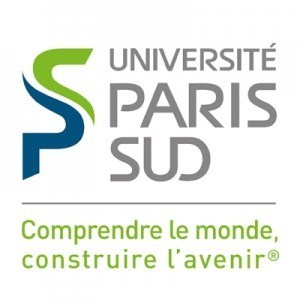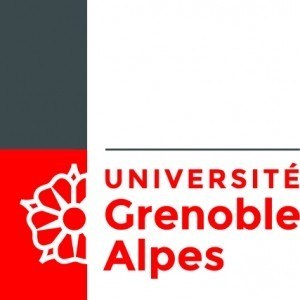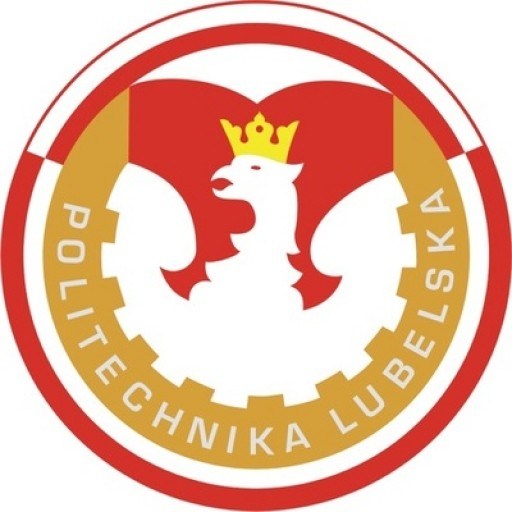Photos of university
Advanced Wireless Communication Systems is a comprehensive Master’s program offered by Paris-Saclay University, designed to equip students with the advanced knowledge and practical skills needed to innovate and excel in the rapidly evolving field of wireless communications. This program focuses on the core principles of wireless communication systems, including signal processing, modulation techniques, network architectures, and the latest developments in 5G, 6G, and beyond. Students will explore the design, optimization, and implementation of high-performance wireless networks, gaining a deep understanding of radio frequency propagation, antenna design, and spectrum management.
The curriculum combines theoretical coursework with hands-on laboratory projects, seminars, and industry collaborations, fostering an environment that encourages critical thinking and problem-solving. Throughout the program, students have the opportunity to work on cutting-edge research topics such as Internet of Things (IoT), machine learning applications in wireless systems, and the integration of artificial intelligence in network management. The program also emphasizes the importance of security, privacy, and sustainability in modern wireless communications.
Students will benefit from the expertise of renowned faculty members involved in pioneering research, as well as state-of-the-art laboratories equipped with advanced testing and measurement tools. The program aims to prepare graduates for careers in telecommunications industry, research institutions, and technological development companies, or to pursue doctoral studies. Graduates will be well-positioned to contribute to the development of innovative wireless solutions that support the digital transformation across various sectors, including healthcare, transportation, and smart cities.
This program is designed for students with a background in electrical engineering, computer science, or related fields, who are eager to deepen their knowledge of wireless technology and contribute to shaping the future of communication networks. By the end of the program, students will have built a solid foundation in both theoretical and practical aspects of wireless communication systems, enabling them to develop, analyze, and deploy next-generation wireless technologies in real-world applications.
The program corresponds to the second year of a two-year European master degree curriculum. The academic year is divided in two semesters :
-
The first semester (referred to as S3) has two periods: first, a one-month intensive period of mathematical (refresher) courses, followed by a second four-month period dedicated to advanced courses (modules) in communication theory and network theory.
-
The second semester (referred to as S4) also has two periods: first, a two-month period of research-oriented lectures (research seminars) in parallel with the realization of an individual research project, followed by a four-month introductory research internship.
The series of mathematical (refresher) courses intend to provide students with a sound knowledge of mathematical concepts and theoretical tools. Advanced courses in semester S3 prepare the students to understand the research-oriented lectures in semester S4. These research-oriented lectures (also referred to as research seminars) address the most recent concepts and trends in wireless communications. They discuss important notions, advanced mathematical tools and sophisticated algorithmic methods. Each meeting may for example assume the form of a reading group, presenting and discussing a landmark paper (or group of key papers) centered on a particular topic. More generally, they bring some flexibility in the syllabus by enabling a prompt evolution of the proposed modules so as to cover emerging research topics or the organization of non-scheduled courses by visiting professors and invited speakers.
| First semester (S3) | Second semester (S4) |
| Mathematical (refresher) courses | Research seminars |
| Advanced courses in communication theory | Research project |
| Advanced courses in network theory | Internship |
In compliance with European standards, the two semesters are equal in terms of ECTS credits (30 ECTS credits for each) and the academic year represents 60 ECTS credits.
| Contents of the academic year | Volume | ECTS |
| Mathematical (refresher) courses | 48H | 4 |
| Advances courses in communication theory | 132H | 16 |
| Advanced courses in network theory | 78H | 10 |
| Research seminars | 72H | 5 |
| Research project | 96H | 5 |
| Internship | --- | 20 |
Students have to attend all the modules in semester S3 without customized path. Educational registration is thus automatic in those modules. During semester S4, students must attend at least ten seminars chosen from all of the proposed seminars. All choices or combinations are not allowed since some seminars call for others as prerequisites. The educational registration to research seminars is semi-annually. The research seminars are also open to the Ph.D. students of all the institutions in the PRES UniverSud Paris. If fewer than eight students (including Ph.D. students) register for a seminar, it will be cancelled and the students registered for the seminar can register for other seminars.
List of courses and seminars
Semester S3 - Mathematical (refresher) courses
| Name of module | Code | Scheduled volume |
| Mathematical Basis for Communications | SAR-B1 | 24H/1 EE/2 ECTS |
| Elements of Probability Theory | SAR-B11 | 12H/ |
| Estimation/Decision theory | SAR-B12 | 12H/ |
| Mathematical Basis for Networks | SAR-B2 | 24H/1 EE/2 ECTS |
| Elements of Optimization Theory | SAR-B21 | 12H/ |
| Queuing Theory | SAR-B22 | 12H/ |
Semester S3 - Advanced courses in communication theory
| Name of module | Code | Scheduled volume |
| Elements of Information Theory | SAR-C1 | 24H/1 EE/3 ECTS |
| Physical and Statistical Modeling of Wireless Channels | SAR-C2 | 24H/1 EE/3 ECTS |
| Principles of Digital Communications | SAR-C3 | 24H/1 EE/3 ECTS |
| MIMO Communications and Multiple Access | SAR-C4 | 24H/1 EE/3 ECTS |
| Source and Channel Coding | SAR-C5 | 36H/1 EE/4 ECTS |
| Fundamentals of Source Coding | SAR-C51 | 6H/ |
| Channel Coding | SAR-C52 | 30H/ |
Semester S3 - Advanced courses in network theory
| Name of module | Code | Scheduled volume |
| Network Architectures and Performance | SAR-N1 | 30H/1 EE/4 ECTS |
| Cellular Communications | SAR-N2 | 24H/1 EE/3 ECTS |
| Wireless Local Area and Ad Hoc Networks | SAR-N3 | 24H/1 EE/3 ECTS |
Semester S4 - Research seminars
| Name of seminar | Code | Scheduled volume |
| Network Information Theory | SAR-S1 | 12H/ |
| Codes on Graphs and Iterative Decoding | SAR-S2 | 12H/ |
| Joint Source-Channel Coding | SAR-S3 | 12H/ |
| Random Matrix Theory | SAR-S4 | 12H/ |
| Multiuser MIMO Communications | SAR-S5 | 12H/ |
| Theoretical Foundations of Mobile Flexible Networks | SAR-S6 | 12H/ |
| Advanced Resource Allocation Strategies | SAR-S7 | 12H/ |
| Network Performance | SAR-S8 | 12H/ |
| Game Theory and Distributed Networks | SAR-S9 | 12H/ |
| Wireless Sensor Networks | SAR-S10 | 12H/ |
| Advanced Networking Aspects in Mobile Networks | SAR-S11 | 12H/ |
To apply to the Master SAR, students must have successfully passed the first year of another Master program in applied mathematics, statistics, applied physics, electrical engineering or computer science at a French college or university or at a foreign university. More precisely, students must show proof of (at least) 240 ECTS credits. All ECTS credits obtained from past successfully completed courses will be taken into account within the framework of this specific educational program.
- The application form duly completed and signed.
- A photograph.
- A curriculum vitae.
- A covering letter specifying the reasons for which the Applicant wishes to enroll the Master SAR.
- Three letters of recommendation from teachers or teachers-researchers willing to attest that the Applicant possesses the abilities and skills necessary to enroll the Master SAR program and in which said teachers or teachers-researchers justify his or her standpoint. The letters of recommendation should preferably be sent directly by the teachers or teachers-researchers to the Secretariat, by e-mail, fax or any other means. It is the Applicant's responsibility to make sure that the three letters of recommendation reach the Secretariat in time.
- A detailed description of the last two years of studies including syllabus, length (in hours) mark obtained for each module and ranking. The Applicant may also describe any other higher education.
- Two envelopes with sufficient postage or international reply coupons for students living abroad.
Scholarships
- Paris-Saclay Master's Scholarship programme
- « Île de France » Master Scholarship program
- Eiffel Scholarship Program
- Paris-Sud University's Top-Up
Advanced Wireless Communication Systems at Paris-Saclay University offers a comprehensive curriculum designed to prepare students for the rapidly evolving field of wireless communications. The program covers core concepts such as signal processing, network architecture, interference management, and emerging technologies like 5G and beyond. Students gain theoretical knowledge complemented by practical laboratory sessions and projects that foster innovation and problem-solving skills. The program also emphasizes the importance of understanding the impact of wireless systems on society and the environment, integrating aspects of sustainability and ethical considerations in technology development. Graduates of this program are equipped to work in diverse sectors including telecommunications, defense, research institutions, and technology companies, contributing to the design, deployment, and management of next-generation wireless networks. Collaboration with industry partners and internships are integral parts of the curriculum, providing students with valuable real-world experience. The program is delivered by faculty members who are recognized experts in wireless communications, ensuring high-quality education and research opportunities. Students have access to state-of-the-art laboratories and resources, enabling hands-on learning and experimentation. The program often includes electives and specialization tracks, allowing students to tailor their studies according to their interests and career goals. Completion of this advanced degree can lead to career advancement, doctoral studies, or entrepreneurship in the field of wireless communications. The program is typically structured over two years, with coursework, project work, and a thesis component culminating in an advanced understanding and skill set in wireless communication systems.







